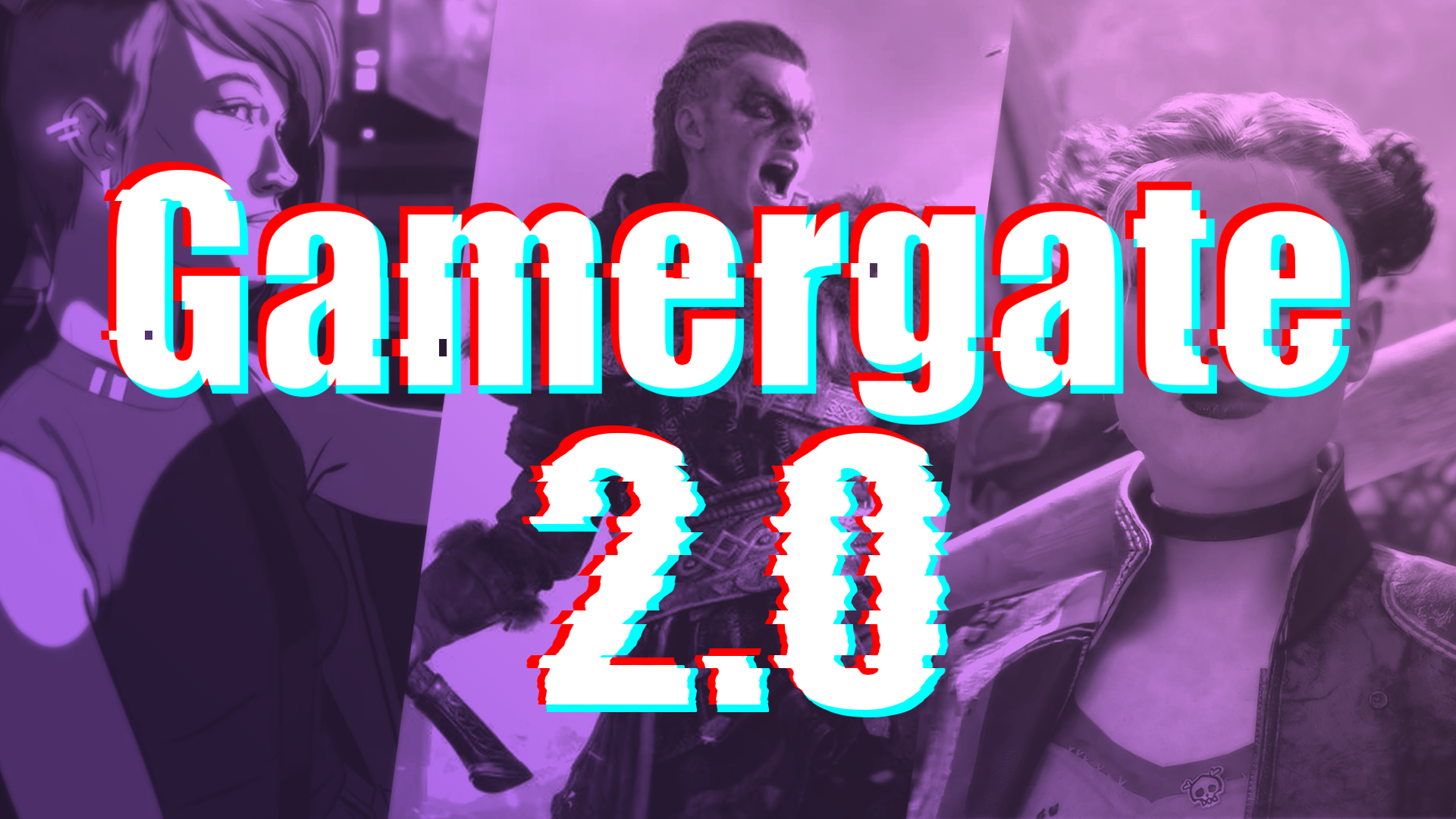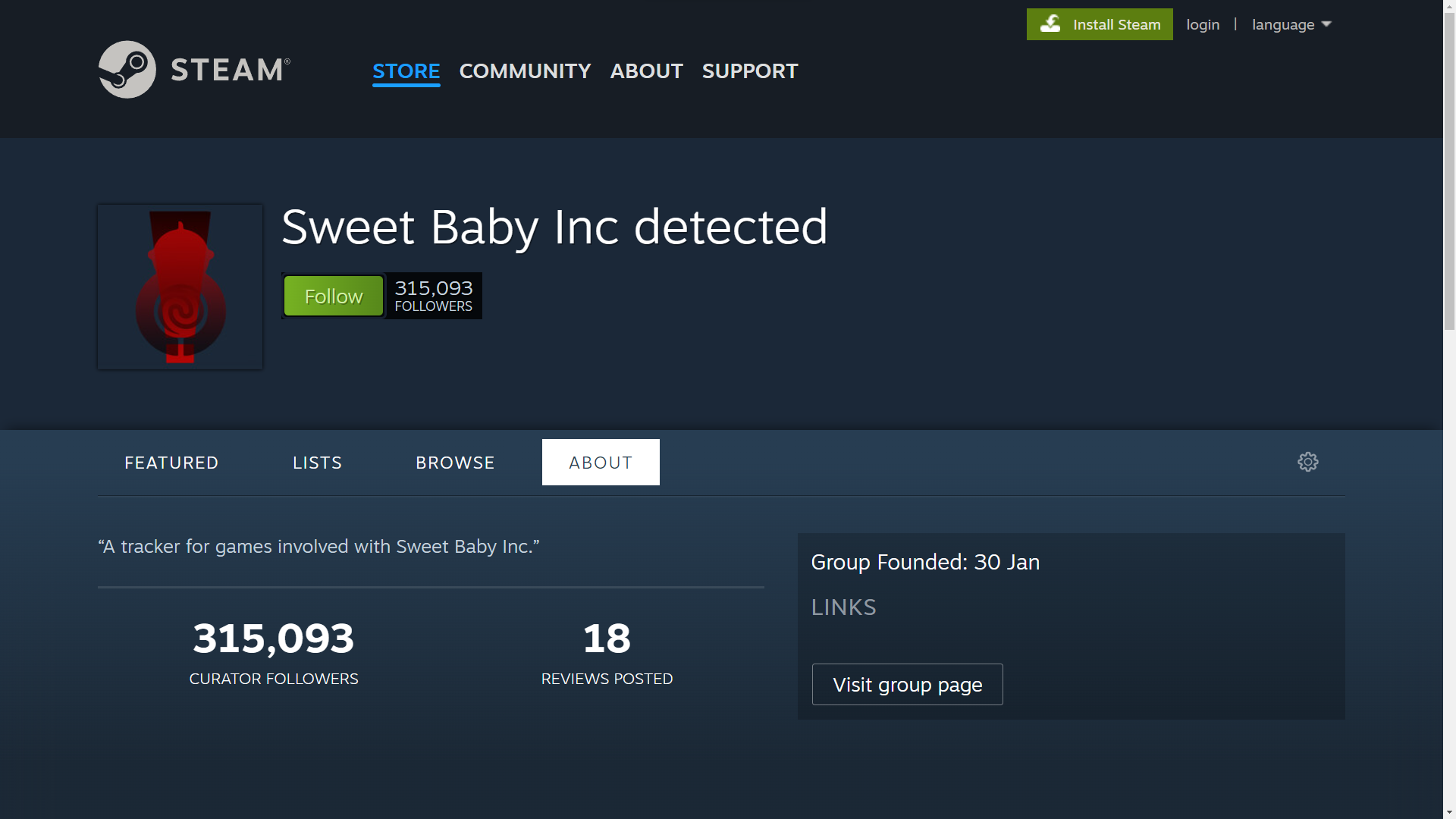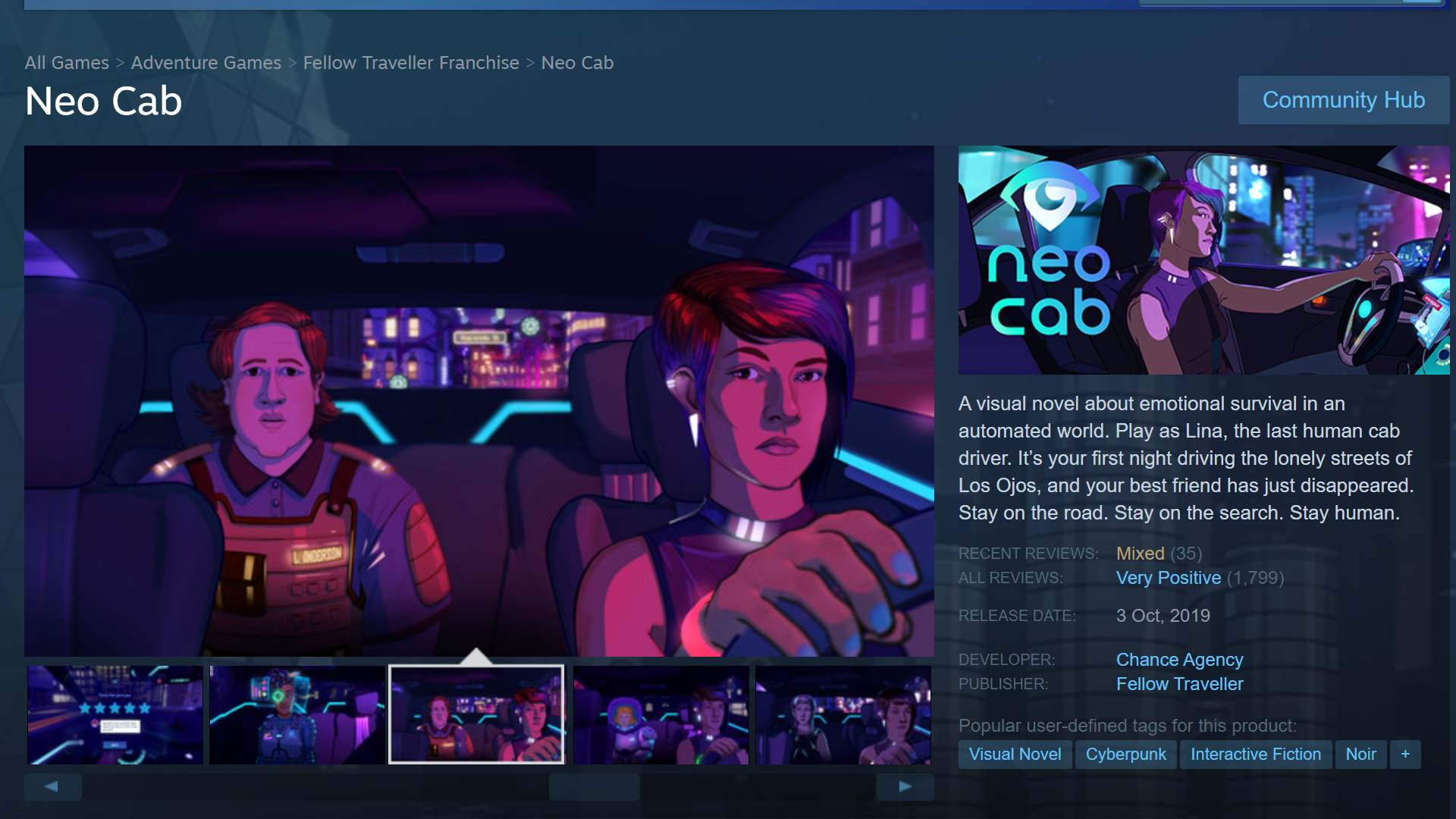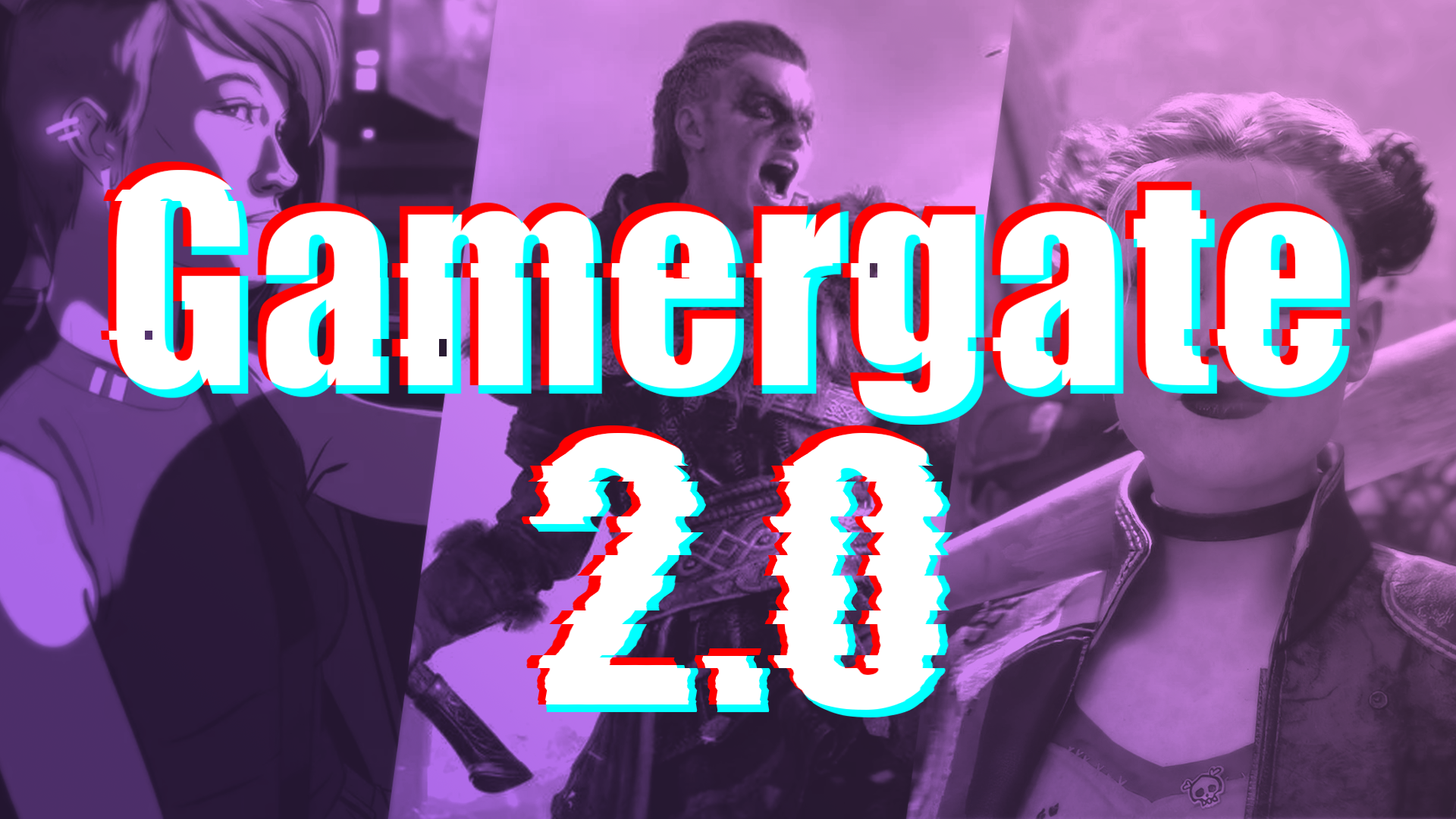10 years after Gamergate, the topic is still as relevant as ever. Who are these people who are dedicated to fighting "Wokeism," and do they perhaps have valid arguments? Spoiler: No, not really.

It has been 10 years since the infamous "Gamergate" first gained traction. Back in 2014, a segment of the gaming community started with voicing criticism of ethics in game journalism and the transparency of game developers. However, things quickly spiraled out of control, and Gamergate rapidly evolved into a hotbed of misogyny and discrimination.
The movement was subsequently accompanied by a plethora of conflicts, controversies, and harassment, with female game developers, journalists, and players becoming targets of attacks and threats. As a result, Gamergate became synonymous with the attack on gender equality and representation of women in gaming culture, leaving a lasting impression on the industry to this day.
Even now, in 2024, the repercussions of the smear campaigns are still being felt, and not just passively. There are groups actively attempting to enforce a Gamergate 2.0, targeting a story consultant company, marginalized developers, and journalists.
Unraveling Gamergate 2.0
For her research, The Verge journalist Ash Parrish joined a Discord server whose main purpose is to fight "wokeism." There, she engaged in discussions with the members, which often proceeded in quite a civilized manner, but still reflected the deep-seated core of bigotry that she was also bombarded with through racist, ableist and sexist memes and slurs.
After that, we had a decent conversation talking about video games and recommendations and journalism processes and what not. When they're not being gross, these are normal people.
So, we have a server here with people who claim to be fighting against "wokeism," but what do they actually mean by that, and what is behind Gamergate 2.0?
Sweet Baby Inc Detected – A Polarizing Steam Curation Page That Raises Eyebrows
The story begins on one of the largest gaming platforms of our time: Steam. There, in January 2024, a curation page called "Sweet Baby Inc Detected" was created.
Using Curation Pages, Steam users can compile lists of games on a specific topic. These lists can be continually expanded and are publicly viewable for other users. It's kind of like a Spotify playlist for games.
Sweet Baby is a narrative development company founded in 2018 that supports game developers as consultants for script and character writing. This often involves the integration of diversity and handling marginalized characters and themes sensitively. And that's precisely where the crux lies. The creator of the Steam page sees this as "forcing political agendas and DEI (Diversity, Equity, and Inclusion) into [...] games."

On the curation page, he collects games in which he detects the involvement of Sweet Baby Inc (SBI) to warn other players about them "and this culture of theirs." And he was successful with it. The curation page is followed by 300,000 Steam users, and in the associated Steam group there are now almost 120,000 members that discuss the matter.
In an interview with Geeks and Gamers, the founder of the pages explains more about his standpoint and why he chose to create a curation page.
I started noticing patterns in some games, like ugly women and male characters being weakened to make female ones look stronger. The first game that SBI worked on where I noticed this kind of stuff was God of War: Ragnarök. I think anyone who played God of War III would find it really weird when Kratos decides to spare Thor and says, “We must be better.” That simply didn’t fit the character.
Just from this quote alone, you can see the kind of world people like him inhabit. They present subjective perceptions of "ugly women" and "weakened male characters" as facts, just as the example of God of War Ragnarök assumes that "anyone" who has played this game shares this opinion.
The validation they receive through the growth of their group's followership strengthens their assumptions. In the curation list of games in which Sweet Baby is supposed to be involved, there are titles like Assassin's Creed Valhalla or the recently released Suicide Squad.
All games on the list are marked as "not recommended," simply because a particular consulting company was involved. There is no discussion about the content or valid points of criticism, of which there are certainly enough, for example, in Suicide Squad.

The members of the group then go to the games’ store pages and review bomb them. For smaller titles like Neo Cab, this can have a pretty big impact. The recent reviews of the game show a "mixed", and that's only because of this curator page.
What Do Companies Like Sweet Baby Inc. Actually Do?
People like these Steam users assume that companies like Sweet Baby impose their ideology on developers without having real evidence for it. Couldn't it simply be that there are people working in game studios who just want to develop more diverse game characters that better represent themselves than those that have been around for the past few decades?
Mary Kenny, narrative director, worked with Sweet Baby on Marvel's Spider-Man 2. “They do research, pitch ideas, give feedback, and maybe even write scripts. But none of that gets into the game unless the core dev team agrees with it.”

As already mentioned, companies like Sweet Baby are responsible for narrative design, which includes writing stories and dialogues. This involves not only the implementation of DEI themes, but rather ensuring that the stories in games make logical sense, as well as the characters portrayed therein.
They also help to incorporate different themes as naturally as possible, including the fair representation of marginalized groups. In fact, developers often approach such companies, not the other way around, as reported by Kim Belair, CEO of Sweet Baby, to Kotaku.
We might be asked to look at a story if there’s a character in it who is marginalized in certain way, and [the studio] wants us to connect them with a consultant who can bring a little bit of authenticity…But the perspective is never that we’re coming in and injecting diversity…For the most part, it’s the reverse. It’s that a company has created a character and they want to make that character more representative and more interesting.
Many members of "anti-wokeism" groups repeatedly mention "forced diversity." Ash Parrish writes in her article about how ironic it is "that one of the group’s stated purposes is to rally against 'forced diversity' in games when developers are often forced to make their games more homogenous."
"Nobody Asked For This" – The Core Misconception Of The Gaming Community
During her discord mission, she engaged in conversations with several members, including moderators of the server, discussing the motivations behind their dubious activism.
We’re just tired of seeing people’s creative visions being butchered in order to add something that’s not even necessary or asked for.
Is that so? Does really nobody ask for the representation of marginalized groups? If you look at the current GLAAD Report, you get a completely different picture.
Approximately 17% of active players are part of the LGBTQ community, according to the report, but only 2% of all games feature content related to this community. Both among queer and non-queer gamers, there are large proportions who are more inclined to play games featuring an LGBTQ main character.
The groups on Steam and the Discord server that Parrish looked into don't only target the queer community and its allies. Every game that includes a character who is not white ends up on their radar. They claim that Sweet Baby is responsible for one of Alan Wake 2's main characters, Saga Anderson, being a black woman. However, Kyle Rowley, the game director, refuted that claim.

Is it really that hard to believe that game writers want to write characters that are not white? The University of Sheffield published data showing that in 2020, 10% out of 3200 surveyed game developers in Great Britain had a BAME (Black, Asian and minority ethnic) background. And this number is rising.
There are people who ask for exactly these types of content, both on the gamer and on the developer side. They don't even have to be part of marginalized groups; it's enough to simply be interested in the stories of other people. It's about how diversity and inclusion are not only morally important, but also enrich the gaming experience and can advance the gaming industry as a whole.
Conclusion – What Remains Of Gamergate 2.0
I couldn't summarize it better than Ash Parrish did in her article:
The arguments and discussions observed in the Discord and on Steam all harken to the reactionary right-wing movement that has dominated the political landscape since Barack Obama’s presidency. Then, as now, many young white men have grown increasingly alienated from a world they feel has left them behind. A supposed de-emphasis of white males in pop culture in favor of women, people of color, and queer people exacerbated this alienation, especially in video games.
It seems that these players feel neglected, although there is objectively little reason for it. The aforementioned statistics and surveys show that white men still dominate the gaming industry. It's just that more and more players, journalists, and companies are calling this out and trying to bring about change.
Parrish describes the cause of these groups on Twitter as lost. They try to have a meaningful influence, but many developers and players have already decided to make the industry more diverse. What remains of the "Gamergate 2.0 movement" is a group of white men wallowing in self-pity and mourning the diminishing power of patriarchy in gaming.






























